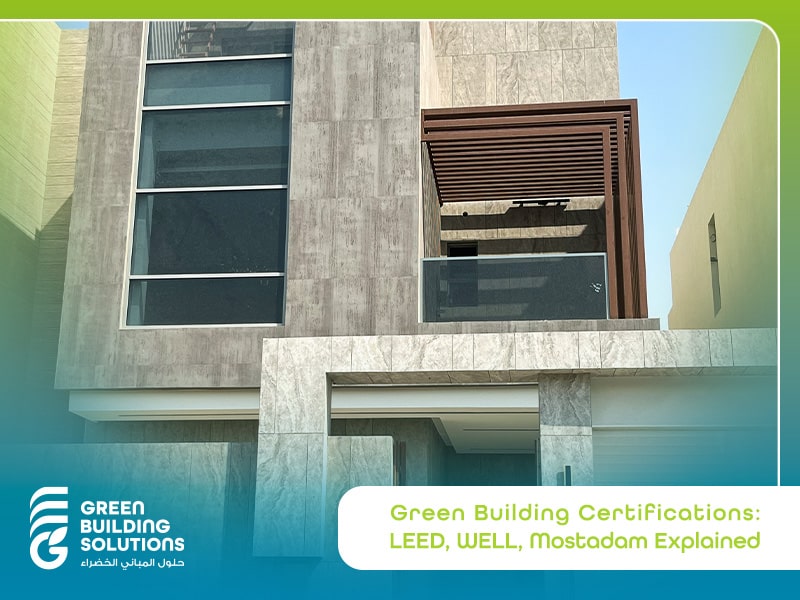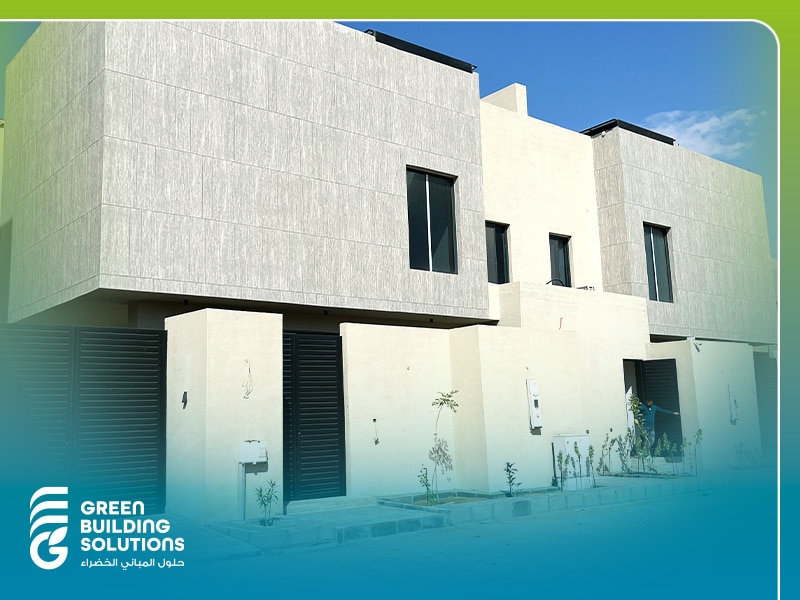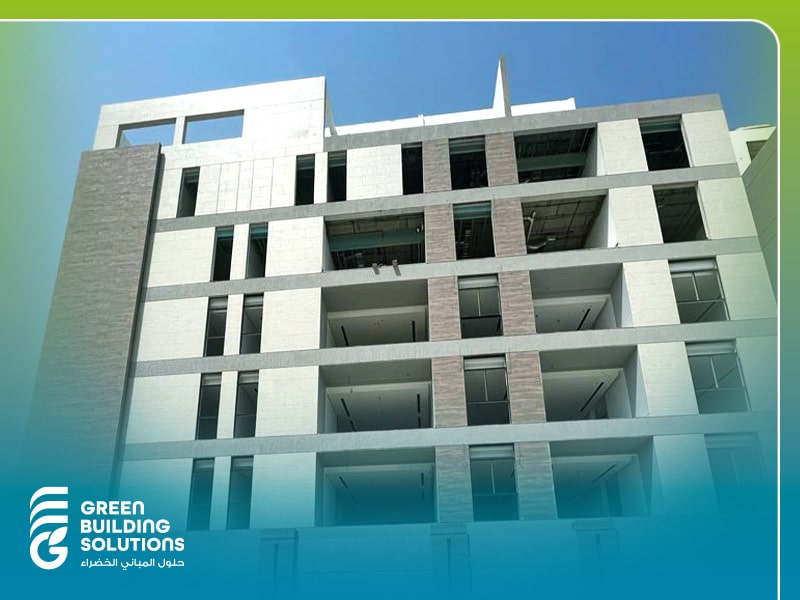Green Building Certifications: The Ultimate Guide to Sustainable Construction in 2025

Sustainable construction is no longer just a global trend—it has become a necessity. Developers and architects are now expected to build projects that reduce energy use, improve indoor comfort, and protect the environment.
In Saudi Arabia, achieving green building certifications is a key step for companies that want to align with Vision 2030. Programs such as LEED Certification in Saudi Arabia, the WELL Building Standard, and the Mostadam Program are shaping the future of construction in the region.
This article explains what these certifications are, why they are important, and how developers can benefit from them. We will also compare the main systems and share the steps needed to achieve accreditation for your project.
What Are Green Building Certifications?
Green building certifications are official rating systems that assess how sustainable and energy-efficient a building is. They evaluate areas such as:
- Energy efficiency and water conservation.
- Use of eco-friendly materials.
- Indoor air quality and occupant comfort.
- Innovation in design and construction.
Examples include eco-friendly building certification programs like LEED, WELL, and Mostadam, which help ensure that buildings meet international and local sustainability standards.
Discover more about: Green Buildings vs Traditional Construction: Key Differences You Must Know in 2025
Why Are Green Building Certifications Important?

- Environmental Responsibility: Certifications encourage the use of eco-friendly clay panels for sustainable architecture and heat-resistant façade cladding solutions for hot climates.
- Cost Savings: Energy-efficient projects reduce operating costs by lowering cooling and electricity bills.
- Market Value: Certified projects attract more buyers, tenants, and investors.
- Compliance: In Saudi Arabia, the Mostadam Program supports Vision 2030 goals for sustainability in the construction sector.
Explore more about: How to Choose the Right Façade Material?
What Is LEED Certification And Its Key Criteria?
The LEED Certification in Saudi Arabia (Leadership in Energy and Environmental Design) is one of the most recognized rating systems worldwide.
Key Criteria:
- Energy and Atmosphere: Efficient HVAC systems and green building solutions for energy-efficient projects.
- Materials and Resources: Use of eco-friendly interior and exterior design solutions and installation services for clay panels, wood and stone alternatives.
- Water Efficiency: Smart irrigation and reduced water use.
- Sustainable Sites: Integration with the environment and reduced heat island effect.
- Indoor Environmental Quality: Better lighting, ventilation, and air quality.
LEED certification helps Saudi projects meet global standards and attract international investors.
Know more about: Best Exterior Cladding Solutions for Heat Resistance in Saudi Arabia
What Is WELL Certification And Its Key Standards?
The WELL Building Standard focuses on the health and well-being of occupants, making it unique among sustainable building rating systems.
Key Standards:
- Air: Improved ventilation and low-emission materials.
- Water: Access to clean and filtered drinking water.
- Light: Natural daylight and circadian lighting systems.
- Comfort: Acoustic and thermal comfort with heat-resistant façade cladding solutions for hot climates.
- Mind: Spaces that support mental health and productivity.
WELL certification is becoming popular in Saudi Arabia for office towers, healthcare facilities, and residential projects.
Get more details on: Best Eco-Friendly Interior and Exterior Decoration Solutions
What Is The Mostadam Program In Saudi Arabia?
The Mostadam Program is Saudi Arabia’s own sustainable building rating system launched under Vision 2030.
It focuses on:
- Energy and Water Efficiency: Optimized systems for Saudi’s climate.
- Sustainable Materials: Use of eco-friendly clay panels for sustainable architecture and professional installation of green building façade systems.
- Community Impact: Encouraging walkable, healthy, and inclusive communities.
Mostadam ensures that Saudi construction aligns with global sustainability standards while addressing local needs.
Find out more about: Best Clay Panels for Eco-Friendly Buildings
Comparison Between LEED, WELL, And Mostadam Certifications
| Feature | LEED Certification | WELL Certification | Mostadam Program |
| Focus | Energy, environment, materials | Health, comfort, wellness | Local sustainability goals for Saudi Arabia |
| Strength | Global recognition | Human-centered design | Vision 2030 alignment |
| Example Applications | Commercial & mixed-use projects | Offices, healthcare, residential | Residential, government, mega-projects |
Steps To Achieve Green Building Accreditation
- Choose the Right System – Decide between LEED, WELL, or Mostadam depending on project goals.
- Plan Materials and Design – Use eco-friendly interior and exterior design solutions and installation services for clay panels, wood and stone alternatives.
- Hire Experts – Work with certified consultants for documentation and compliance.
- Construction Phase – Ensure use of eco-friendly clay panels, heat-resistant façade cladding solutions, and other sustainable methods.
- Final Assessment – Submit documentation and performance data for certification approval.
Dive deeper into: PHOMI Clay Panels: The Complete 2025 Guide to Eco‑Friendly Wall Solutions
Benefits Of Certification For Owners And Developers

- Lower Costs: Reduced energy and water bills.
- Higher Market Value: Attracting investors and tenants.
- Sustainability Leadership: Positioning the company as a leader in green building solutions for energy-efficient projects.
- Government Support: Especially through Saudi Arabia’s Mostadam Program.
FAQ About Green Building Certifications
Q1: Are green building certifications mandatory in Saudi Arabia?
A: While not mandatory for all projects, they are strongly encouraged under Vision 2030 and are required in many government-led developments.
Q2: Which certification is best for my project?
A: For international recognition, go with LEED Certification in Saudi Arabia. For health-focused projects, choose WELL Building Standard. For local compliance, apply for the Mostadam Program.
Q3: Do certifications increase project cost?
A: Initial costs may rise slightly, but savings in energy and maintenance quickly offset the investment.
Q4: Can traditional buildings be upgraded to certified green buildings?
A: Yes, through retrofitting using eco-friendly clay panels for sustainable architecture and professional installation of green building façade systems.
Q5: What is meant by “Certifications and Standards in Green Building Sector”?
A: It refers to the recognized certifications and regulatory standards in the green building industry. These systems are designed to ensure that the design, construction, and operation of buildings follow sustainable practices that reduce environmental impact, improve energy and water efficiency, and provide a healthy indoor environment.
Green building certifications such as LEED, WELL, and Mostadam are transforming Saudi Arabia’s construction industry. They ensure energy savings, healthier spaces, and long-term value for developers and occupants.
At GBS, we specialize in green building solutions for energy-efficient projects, offering eco-friendly clay panels, installation services for clay panels, wood and stone alternatives, and professional installation of façade systems.
Contact GBS today to discover how we can help your project achieve eco-friendly building certification and meet the highest sustainability standards.
